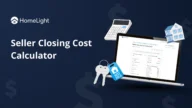Taxes on Selling a House in Washington State
- Published on
- 9 min read
-
Max Efrein, Contributing AuthorCloseMax Efrein Contributing Author
Max Efrein is a journalist who has covered a wide array of topics, including tracking real estate trends, for both traditional newspapers and online media. He also picked up some firsthand home building experience while significantly expanding and renovating his house to accommodate his growing family.
-
Richard Haddad, Executive EditorCloseRichard Haddad Executive Editor
Richard Haddad is the executive editor of HomeLight.com. He works with an experienced content team that oversees the company’s blog featuring in-depth articles about the home buying and selling process, homeownership news, home care and design tips, and related real estate trends. Previously, he served as an editor and content producer for World Company, Gannett, and Western News & Info, where he also served as news director and director of internet operations.
When you sell a home in Washington State, you can expect to pay some sizable transfer taxes.
The main thing to consider is the state’s real estate excise tax (REET). Aside from that, there are lesser local transfer taxes, as well as the standard federal tax on capital gains you make from the home sale.
With the help of a top Washington State real estate agent, we’ll take a look at each of these tax liabilities and how they add up when you sell your Washington home.
What is Washington’s real estate excise tax?
This is the primary tax you’ll have to pay when you sell your Washington home. It’s based on the entire sales price (not just the profit), and the percentage you owe graduates as the sales price reaches specific thresholds.
Effective Jan. 1, 2023, the selling price thresholds for the state portion of REET will be as follows:
| For the portion of the selling price that is: | Real Estate Excise Tax Rate |
| Less than or equal to $525,000 | 1.1% |
| Greater than $525,000 and less than or equal to $1,525,000 | 1.28% |
| Greater than $1,525,000 and less than or equal to $3,025,000 | 2.75% |
| Greater than $3,025,000 | 3.0% |
Most counties and local governments in the state also charge their own smaller REETs on top of the state’s rate. In most jurisdictions, this amounts to an additional 0.25% or 0.50% of each selling price threshold.
John Dirgo Deweese, an Ocean Shores, Washington, real estate agent with 21 years of experience, says home sellers are commonly caught off guard by these taxes.
“It’s really something that only occurs for most people with the sale of a house or something like that,” Deweese explains. “It’s a complete surprise to people when it comes up.”
For this reason, he usually breaks the news to his clients at the beginning of the selling process and explains that REETs are unavoidable.
“Absolutely everyone pays this on every real estate sale,” he says. “There’s no exemptions, exclusions, nothing.”
Calculating the graduated real estate excise tax
Example A
Let’s say you’re selling your home in Oakville, Washington, for $600,000. Since the local REET in Oakville is 0.25%, the first $525,000 is taxed at 1.35% (.25% + 1.1%). The remaining $75,000 is taxed at 1.53% (.25% + 1.28%).
| $525,000 x 1.35% = | $7,087.50 |
| $75,000 x 1.53% = | $1,147.50 |
| Total taxes | $8,235 |
Example B
Now, let’s say you’re selling your home in Seattle for $4 million. Since the local REET in Seattle is 0.5%, the first $525,000 is taxed at 1.60%. The next $1 million is taxed at 1.78%. The next $1.5 million is taxed at 3.25%, and the final $975,000 is taxed at 3.5%.
| $525,000 x 1.60% = | $8,400 |
| $1,000,000 x 1.78% = | $17,800 |
| $1,500,000 x 3.25% = | $48,750 |
| $975,000 x 3.5% = | $34,125 |
| Total taxes | $109,075 |
Is selling a house considered income or taxable gain?
Since Washington doesn’t have an income tax, and real estate is exempt from the state’s proposed capital gains tax – which is tied up in the courts anyway – the profits made from the sale of a home can’t really be classified as either income or taxable gain on the state level.
On the federal level, a home sale can be taxed as either regular income or a capital gain, depending on how long you’ve owned the property. If you buy and sell the home within the same year, any profit you make from that sale is considered a short-term capital gain and is taxed at the same rate as ordinary income.
If you’ve owned the home for at least a year before selling it, then any profit is considered a long-term capital gain, which typically has a lower tax rate.
Example
Let’s say you buy a home for $200,000 and then sell it for $300,000 nine months later. That $100,000 would be considered regular income and be taxed based on your tax bracket, of which there are seven ranging from 10% to 37%.
If you sell the home after a year of owning it, the profit would be considered a long-term gain and taxed at either 0%, 15%, or 20% (possibly higher in certain situations), depending on your overall income that year.
In a minute, we’ll review how gains are federally taxed on a home you’ve owned for two or more years before selling.
Is there a 7% additional capital gains tax on Washington home sales?
In short, not at this time.
What happened?
A 7% state capital gains excise tax on long-term capital gains in excess of $250,000 went into effect on January 1, 2022. The new law specifically targeted assets such as stocks, bonds, and business interests. Real estate was exempt from the start, so home sellers were never affected.
In March of 2022, the law was found unconstitutional by the Douglas County Superior Court in Quinn v. State of Washington.
In March 2023, the Washington State Supreme Court determined that the excise tax on capital gains is constitutional and valid. As such, the Department of Revenue started collecting the tax.
What to look out for?
Though real estate is currently exempt from the state’s 7% capital gains excise tax, Realtors and other real estate professionals are still keeping an eye on what happens with the tax.
“We all know that capital gains taxes, and taxes in general, have a way of — once they’re in place — slowly expanding,” Deweese says. “That’s not an immediate concern, but it’s definitely something we’re kind of watching for in the future.”
How can I avoid capital gains tax on my home sale?
1. Standard tax exclusion
Long-term gains from a home sale can qualify for a standard tax exclusion if you’ve owned and used the home as your primary residence for two of the last five years prior to the sale. For it to qualify as your primary residence, you must occupy it for the greater part (6+ months) of each of those two years.
The exclusion is as follows:
- If you’re a single tax filer and you sell your primary home, you can exclude up to a $250,000 gain.
- If you’re married and filing jointly, you can exclude up to a $500,000 gain in the sale of your primary home.
You may take the exclusion only once during a two-year period.
For a list of exceptions to the primary residence eligibility test, see IRS Publication 523.
2. Calculating basis
To calculate the capital gains from your home sale, you deduct your home’s adjusted cost basis from the sales price.
A home’s adjusted cost basis is the overall amount you’ve put into buying, improving, and selling the home. This can include such costs as transfer taxes, escrow fees, appraisal fees, agent commissions, and any major capital improvements. For a list of the capital improvements you can add to the cost basis of your home, see IRS Publication 530.
Carefully adding all of these expenses up can reduce your taxable gains.
How much is capital gains tax on rental property or a second home?
Unless you’ve owned and used your rental property or second home as your primary residence for two of the last five years prior to selling it, then the sale typically won’t qualify for the standard federal tax exclusion.
Two other methods of possibly reducing your capital gains from investment properties are through tax-loss harvesting and the 1031 exchange rule.
- Tax-loss harvesting is simply reducing your taxable gain from an investment by taking a loss on another investment. So, if you make money selling your vacation home, perhaps you have some poorly performing stocks you’d like to sell off before the year is up.
- The 1031 exchange rule allows you to defer capital gains by taking the money you’ve earned from your rental sale and reinvesting it into a “like-kind” rental property. This requires timely action. The new investment property has to be chosen within 45 days of the original property’s sale, and the new purchase has to be completed within 180 days.
When in doubt, talk to a professional
Washington’s real estate tax environment isn’t the harshest in the country, but it’s certainly not the cheapest.
Knowing how to navigate your local tax system can make a significant difference when selling a home. That’s why it’s always best to consult with a real estate accountant or tax professional, and partner with a top agent who specializes in this sort of work in your area. They can help you determine your adjusted cost basis and identify opportunities to reduce your capital gains liability so you don’t pay more than you absolutely have to. Consult a tax advisor.
Editor’s note: This article is for educational purposes only, not financial, tax, or legal advice. When considering taxes on selling a house in Washington State, HomeLight always encourages you to reach out to a professional advisor regarding your own situation.
Header Image Source: (iriana88w / Depositphotos)












